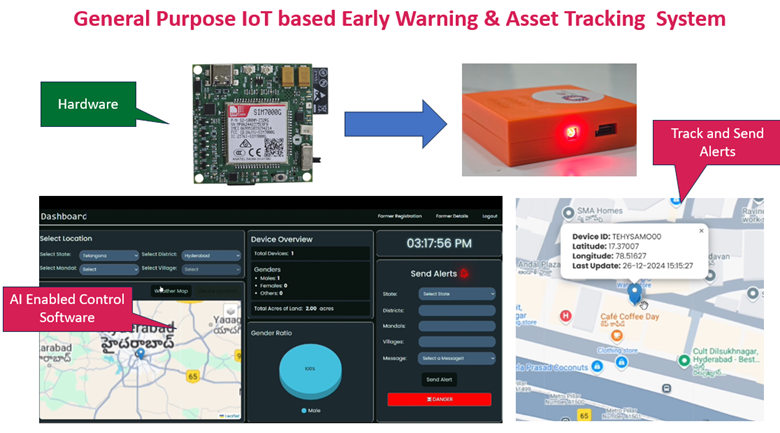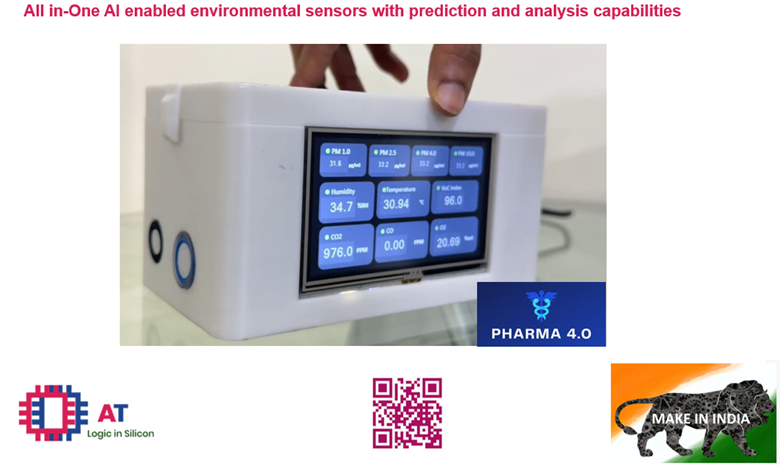Global Postdoctoral & Researcher Programme
Lincoln University College Malaysia Global Postdoctoral & Researcher Programme (LGPR): Online/Hybrid Mode
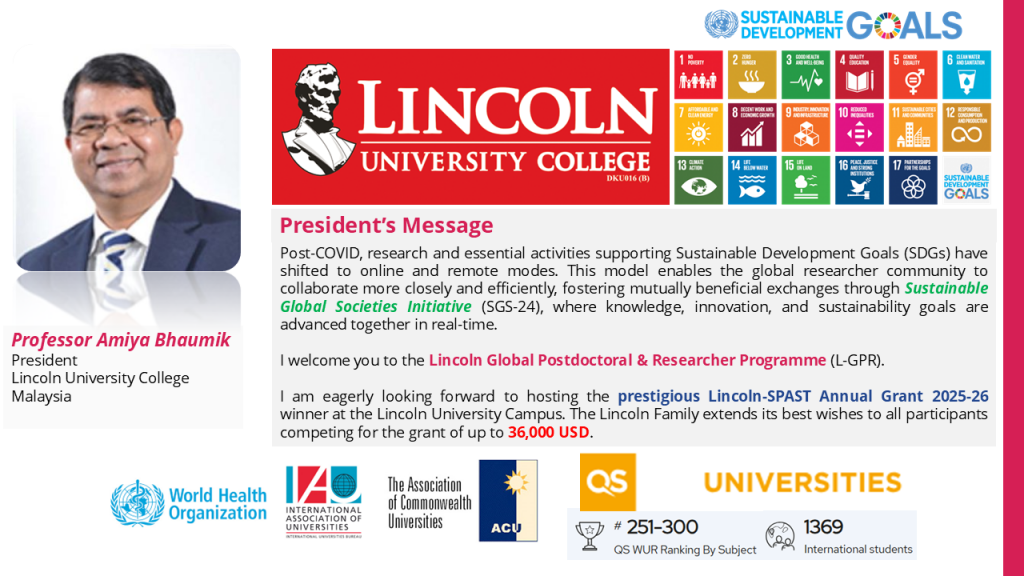
Official Landing Page: https://www.sgs-lincoln.com/
Mode: Hybrid (11 Months Online and 1 Month Physical Mode*)
*Physical Mode is Optional & available for Self-sponsored candidates only
Candidate Registration Link: https://pdfonline.lincolnedu.education/lgpr/frmapplication.aspx
SPAST-Lincoln Resources: https://www.sgs-lincoln.com/resources
Deadline for registration for each batch every year:
Batches | Application Deadline | Commencement (tentative) |
Spring | 30th April | 25th May |
Summer | 30th July | 25th August |
Autumn | 30th October | 25th November |
Winter | 30th January | 25th February |
Introduction
The Lincoln University College Malaysia (LUCM) Global Postdoctoral & Researcher Programme(hybrid mode) is designed to foster advanced research and academic excellence across diverse fields of study. LUCM is committed to nurturing global talent and providing a platform for postdoctoral researchers to engage in innovative research, with a particular focus on addressing real-world challenges. The programme offers participants access to state-of-the-art facilities, an interdisciplinary environment, and a vibrant academic community, ensuring a supportive framework for scholarly advancement. With its strong global partnerships, LUCM empowers researchers to contribute meaningfully to their disciplines while promoting international collaboration and knowledge exchange.
Objectives of the Postdoctoral Researcher Programme
The primary objectives of this programme are:
- To attract distinguished researchers who can significantly contribute to LUCM’s research agenda.
- To promote interdisciplinary research and innovation by providing advanced research opportunities.
- To foster international collaborations and enhance LUCM’s global visibility.
- The LUCM brand will in-turn support the postdoctoral candidates and researchers.
- The SPAST Foundation shall support the candidates with state-of-the-art IoT laboratories and Data labs.
- CREP, the partner of SPAST, shall help in assisting exceptional candidates with Open Access fee for the reputed journals like Scientific Reports, IEEE Access, RSC Advances, RSC Sustainability, Philosophical Transactions of the Royal Society etc.
Programme Structure
All candidates registered in this program are required to conduct research under the supervision of LUC Malaysia’s faculty. The program also allows for joint supervision, where one supervisor is from LUCM, and additional supervisor(s) can be proposed by the coordinators or executive committee. The additional supervisor must provide written consent via email, which must be submitted to the steering committee for review.
*Mode: The programme will be held in online mode for 11 months, whereas the candidate may visit LUCM to present the 11 month’s research report physically and collect the completion certificate. Alternatively, the certificate can be sent via post upon request, and a digital copy will be emailed to all candidates by default.
Note: There is no fee for this programme and likewise there is no stipend.
Completion Certificate
All candidates are required to meet the following requirements to complete the program:
- Participate in the four international conferences organized by LUCM, adhering strictly to one or more research themes that must be submitted at the time of application.
- Publish one SCI paper, or one WoS paper, or one SSCI paper (for humanities), or two SCOPUS-indexed or EI Compendex journal articles.
- All publications should preferably align with the same research theme or subfield.
These requirements apply to both Postdoctoral candidates and Research Associates.
Admission, Tuition, and Conference Registration Fees
Admission Fees | Contact with LGPR | |
Tuition Fees | Contact with LGPR | |
Conference Registration fees (Mandatory for all 4 conferences)
*See country list below this table | Emerging and Developing Countries* (as per the World Bank) | Developed Countries* (as per the World Bank) |
11800 INR | 140 USD | 625 MYR | 200 USD | 888 MYR | |
Each candidate has to attend the four in-house conferences. | 47200 INR| 560 USD | 2500 MYR | 800 USD | 3552 MYR |
Journals | Follow the standard Clarivate Analytics list | |
Countries and Income Group Classification
L1 Countries (Developed Countries)
Bermuda, Liechtenstein, Norway, Switzerland, Luxembourg, Ireland, Isle of Man, United States, Faroe Islands, Denmark, Qatar, Iceland, Singapore, Sweden, Cayman Islands, Australia, Netherlands, Austria, Israel, Finland, Hong Kong, Germany, Belgium, Canada, United Kingdom, United Arab Emirates, New Zealand, San Marino, France, Andorra, Macau, Japan, Kuwait, Italy, New Caledonia, South Korea, Sint Maarten, Greenland, Aruba, Malta, Spain, Cyprus, Bahamas, Brunei, Slovenia, Bahrain, Saudi Arabia, Estonia, Czech Republic, Portugal, Turks and Caicos Islands, Puerto Rico, Lithuania, Slovakia, Latvia, Greece, Oman, Saint Kitts and Nevis, Croatia, Barbados, Antigua and Barbuda, Hungary, Poland, French Polynesia, Curacao, Uruguay, Nauru, Panama, Trinidad and Tobago, Romania, Chile, Guyana, Guam, United States Virgin Islands, American Samoa, Northern Mariana Islands, British Virgin Islands, Gibraltar, Monaco, Saint Martin.
L2 Countries (Emerging Countries)
Albania, Algeria, Argentina, Armenia, Azerbaijan, Belarus, Belize, Bosnia and Herzegovina, Botswana, Brazil, China, Colombia, Costa Rica, Cuba, Dominica, Dominican Republic, Ecuador, El Salvador, Equatorial Guinea, Fiji, Gabon, Georgia, Grenada, Guatemala, Indonesia, Iran, Islamic Rep., Iraq, Jamaica, Kazakhstan, Kosovo, Libya, Malaysia, Maldives, Marshall Islands, Mauritius, Mexico, Moldova, Mongolia, Montenegro, Namibia, North Macedonia, Paraguay, Peru, Serbia, South Africa, St. Lucia, St. Vincent and the Grenadines, Suriname, Thailand, Tonga, Türkiye, Turkmenistan, Tuvalu, Ukraine.
L3 Countries (Developing Countries)
Angola, Bangladesh, Benin, Bhutan, Bolivia, Cabo Verde, Cambodia, Cameroon, Comoros, Congo, Rep., Côte d’Ivoire, Djibouti, Egypt, Arab Rep., Eswatini, Ghana, Guinea, Haiti, Honduras, India, Jordan, Kenya, Kiribati, Kyrgyz Republic, Lao PDR, Lebanon, Lesotho, Mauritania, Micronesia, Fed. Sts., Morocco, Myanmar, Nepal, Nicaragua, Nigeria, Pakistan, Papua New Guinea, Philippines, Samoa, São Tomé and Príncipe, Senegal, Solomon Islands, Sri Lanka, Tajikistan, Tanzania, Timor-Leste, Tunisia, Uzbekistan, Vanuatu, Vietnam, West Bank and Gaza, Zambia, Zimbabwe.
L4 Countries (Developing Countries)
Afghanistan, Burkina Faso, Burundi, Central African Republic, Chad, Congo, Dem. Rep., Eritrea, Ethiopia, Gambia, The, Guinea-Bissau, Korea, Dem. People’s Rep., Liberia, Madagascar, Malawi, Mali, Mozambique, Niger, Rwanda, Sierra Leone, Somalia, South Sudan, Sudan, Syrian Arab Republic, Togo, Uganda, Yemen, Rep.
Leadership & Team
Professor Amiya BhaumikHonourable President,Lincoln University CollegeMalaysia |

Steering Committee
Member Names | Details |
Prof. Dimitrios A Karras | Professor CSE, Epoka University, Tirana, Albania
Professor Electrical Engineering, National and Kapodistrian University of Athens Greece
https://scholar.google.com/citations?user=IxQurTMAAAAJ&hl=en He has 3353 citations, H- Index 24 and i-10 index of 71 |
Prof. Eugenio Vocaturo | Professor , CNR Nanotec Italy Professor, Università della Calabria Italy
https://scholar.google.it/citations?user=7yMpRMoAAAAJ&hl=it Computer Science & Engineering Citations 1239, H-Index 24, and i-10 Index 37 |
Prof. Anup Pradhan | Department of Quality and Operations Management University of Johannesburg, South Africa
https://scholar.google.co.za/citations?user=i6pg6EQAAAAJ&hl=en
Citations 1599, H-index 18, I10-index 28 |
Prof. Nita Inderlal Sukdeo | University of Johannesburg, South Africa https://scholar.google.co.za/citations?user=-xwZQ-8AAAAJ&hl=en Citations 511, h-index 14, i10-index 17 |
Prof. Sai Kiran Oruganti | Faculty, Lincoln University College Malaysia (ODL). CEO, TIH Indian Institute of Technology Patna, under the National Mission of the Government of India on sustainable cyberphysical systems.
https://www.scopus.com/authid/detail.uri?authorId=55820566100
Citations: 4,112, H-Index: 14, Patents: 16 ( 8 US patents) all commercialized and have been adopted as the part of the wireless systems for the international marine standards.
URSI Young Scientist Award Winner in 2016. Founder of 2 Engineering Startups |
Prof Midhunchakkaravarthy Janarthanan |
Dean Faculty of AI and Computing, Lincoln University College Malaysia https://scholar.google.com/citations?user=YE4yYWwAAAAJ&hl=en Citations 1041, h-index 16, i10-index 24 |
Prof Shashi Kant Gupta | Adjunct Faculty (research), Lincoln University College Malaysia. https://www.igi-global.com/affiliate/shashi-kant-gupta/453410 Is a series editor for IGI Global | Taylor & Francis | CRC Press | Springer-Nature. Prof Gupta is responsible for assisting candidates with supervisors and high quality publications. |
Jaikant Singh | He is the policy and external advisor. He is the Founding Director National Skill Development Corporation, Government of India. |
Technology Team
Srinesh Singh Thakur | Founder Atya Technologies and Co-Founder SPAST Foundation
16 years of Electronic Hardware Development experience with IIS Fraunhofer research Institute, EADS, Coherent Europe. |
Chandrakanth | 10 plus years of software and IT development with SCANIA Sweden. He is currently leading the Artificial Intelligence products of Embedview private limited. |
Srinivas Naik | Cybersecurity researcher for Intel India and has led the penetrative testing product which later resulted in the Penetrative Testing as a Service for Pi Datacenter, Server Basket and BluSapphire. He has 15 plus years of experience in Cybersecurity product development. |
Operations Team
Divya | 8 Years of Project Management experience with MNC’s- Dell, Infotree, OLSET San Francisco. She heads the VectMag conferences as the managing partner. She is the senior Editor for publications. |
Sushant | 16 plus years of SCRUM and Project Management expertise with the Indian IT sector. |
Surabhi | Editor and Coordination committee member for LGPR. Handles Marketing and addresses communication collaterals |
Rexona | Doctoral Candidate with Indian Institute of Technology Kharagpur. She handles Editing, communications and technical troubleshooting. |
Lalitha | Intern | Student Indian Institute of Technology Madras- Bachelors in Data Science and AI. |
Ankit | With over 9 years of experience in the financial sector and over 7 years dedicated to the general insurance domain with MNC’s like- Ernst & Young, Forvis Mazars UK. |
Resources
Under the Lincoln University College Malaysia & SPAST Foundation’s Sustainable Global Societies Initiative, we are actively building and expanding a comprehensive resource hub to support research in AI, Antenna Design, PCB Design, and related fields. Through its strong network of corporate partners, including Atya Technologies, which is actively supporting this initiative, SPAST provides researchers with access to critical datasets and hardware essential for cutting-edge innovation. Currently, the foundation offers an extensive database for AI and technology researchers, including environmental data collected over 90 days in a high-traffic metropolitan zone, rapid embedded system prototyping evaluation kits, IoT development boards, and pharmaceutical sensors. Additionally, researchers can leverage a collection of 49+ high-quality sensors, along with plug-and-play IoT electronic modules and a software dashboard, enabling seamless experimentation and real-world deployment. These resources, backed by Atya Technologies, empower innovators to accelerate technological advancements while addressing sustainability challenges.
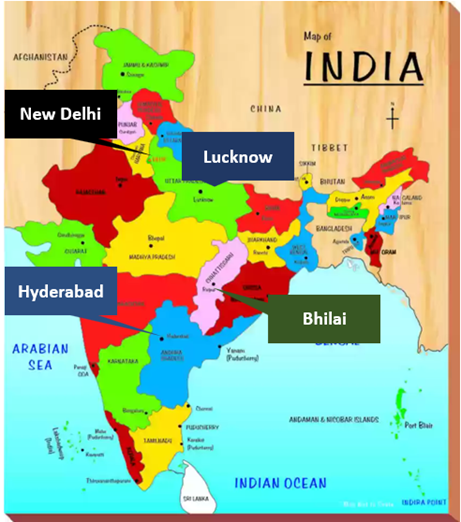
Figure 1: Laboratories and Data centers of SPAST across India
SPAST owns a server for the purpose of AI and ML research & product development.
These resources are freely available for the researchers enrolled under the LGPR programme for use throughout the course of this programme and beyond.
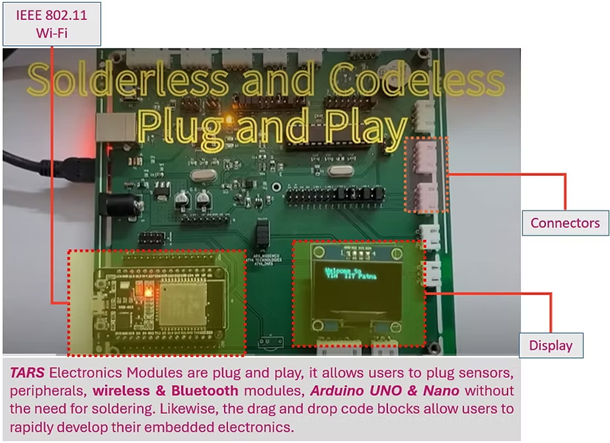
Figure 2: In-house IoT cluster kits for sensor integration and data acquisition
More details here: https://www.sgs-lincoln.com/post/resources-for-lgpr-candidates-spast-labs-lincoln-university-college-malaysia
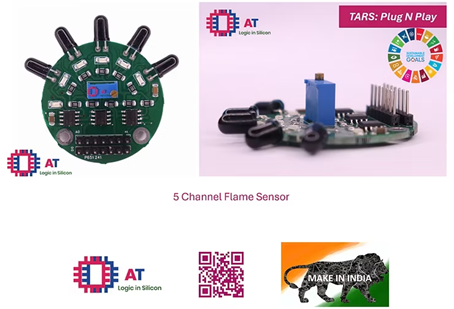
Figure 3: In-House Sensors, a range of 50 sensors have been developed that are required by researchers and engineering community alike.
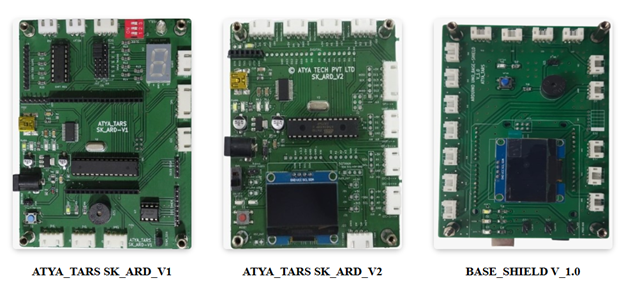
Figure 4: Wifi Enabled IoT & Embedded Systems Development Boards
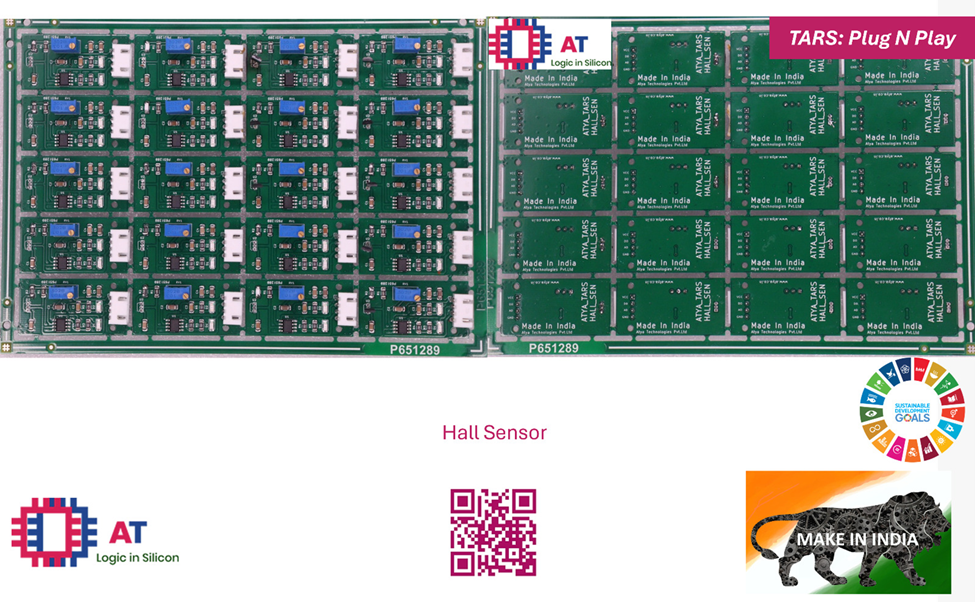
Figure 5: Hall Sensors developed In-House
